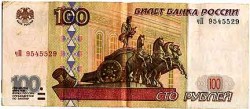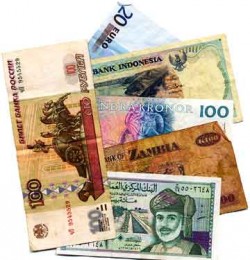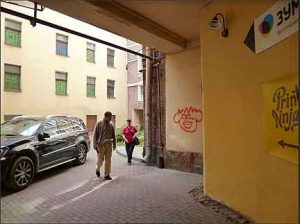Don’t be self-ripped
That means: do your research. Besides knowing the tricks and scams prevalent in your destination, you should be up-to-date on currency. Look up the exchange rate, get familiar with the denominations of the foreign currency and what each note is worth in dollars. Low-value currency can be baffling. Menus and price tags can blind you with zeros in Istanbul, for example, with the Turkish lira at six hundred thousand some to the dollar. Will you pay 21,875,000 lira for your dinner, or 218,750,000? It’s easy to make a mistake. We got so many Zambian kwachas for our $10 once, we kept them and stuck thick wads inside our prop wallets. (That was before we realized that cut paper thickened a wallet just as temptingly.)
So, know the currency; also consider how much cash you need to carry. Bob and I recommend carrying as little as possible. We’re great proponents of credit cards. Sure, you need enough local currency for small purchases. Taxis, delightful sidewalk coffee and exotic streetfood, craft markets, tips, and all those expensive luxury items you want to buy without a papertrail, all require cash. But for the rest of it, credit cards are a better deal.
When you buy foreign currency, the money dealer makes a profit. You may be charged a poor rate of exchange, a fixed fee, a commission, or all three. Believe it or not, many money changers will negotiate. You might get a better rate or lower commission if you exchange more money. Some dealers prefer U.S. notes in certain denominations and will give you a better rate for them. Many won’t take old, tattered, or damaged U.S. notes. Most won’t take torn or taped bills at all.

Before you buy foreign currency, compare the posted prices at several booths or banks. Find out whether they charge fees or commissions. Compare, and ask for better deals.
Never change money on the black market. Never change money on the street.
How much local currency should you buy? You’ll definitely get a better rate if you change a larger amount, say, perhaps, over U.S. $400. But if you don’t use it all and have foreign currency left over at the end of your trip, you’ll lose again changing it back into U.S. dollars. You can get local money from ATM cashpoints, but they are notoriously expensive, often charging fees at both ends (your own bank and the local bank) on top of poor rates. Not to mention the numerous tricks, scams, and thefts associated with ATMs, which I’ll discuss later.
Bob and I say change a little money. Enough for small purchases, whatever that means to you, depending on where you are. Use a credit card for everything else.
Credit cards are accepted in the most remote and exotic places. (But not all. Research.) Some taxi drivers take them, as do shops, restaurants, tour companies, and hotels around the world. Not all, of course. And cash does give you bargaining power. Your research will help you decide how much cash you need. Here’s the advantage of credit cards: they charge the prevailing rate plus two or three percent on foreign purchases (plus a small percentage called a “foreign transaction fee”). That means, as currency prices fluctuate, you’ll be charged for today’s purchase at today’s exchange rate, plus that small percentage, which varies by company. Compare that with the ten- to fifteen-percent commission you’ll pay to buy foreign cash. As to the fluctuation in price of foreign currency, well, unless you’re planning to spend a lot of money over a period of weeks or months, or during turbulent times, that may not be a huge consideration. Unless you like to gamble in money futures.
There are more advantages to using credit cards. Many credit card companies offer useful perks, including guarantees for loss or damage of your purchase, doubled warranties on items purchased, and assistance with disputes or shipping problems. Only you know what fringies your credit card attaches. Of course they’re easy to carry and use. If you should lose one, a timely phone call to the sponsoring bank will relieve you of liability should the card be fraudulently used. More on this in Chapter Nine [of our book Travel Advisory: How to Avoid Thefts, Cons, and Street Scams].
If you’re organized, you can monitor your charges and pay your bill on the internet, wherever you are. You can also pay by phone; many countries have a local number that patches you through to a U.S. company representative.
We recommend having three separate credit card accounts, from three separate companies: say: Visa, Mastercard, and American Express. You walk around with your Visa or Mastercard, and an American Express card; at least one is likely to be accepted. Leave the third card locked up in your hotel room. In the worst case scenario, if you should lose your wallet and need to cancel your cards, you’ll still have one, on a different account, which you can use for the remainder of your trip.
Say you do lose your two credit cards and need to cancel them. Do you know the phone number to call? No. It’s printed on the back of the card and the card is gone. Do you know your account number? Hopefully, you do. But before you do anything else, prepare yourself: fill out our Theft First Aid form in the back of this book [Travel Advisory] and put it with your passport. When you travel, leave the Theft First Aid form in your hotel room.
And while you’re preparing yourself, make a photocopy of the first page of your passport. You can carry the copy around for identification while your passport is safely stowed in your hotel room. Only a few countries actually require you to carry your passport around on a daily basis, although situations change with the political winds. If you’re not required to carry your passport around, don’t. Unless, that is, you’re staying in a grass hut on a beach with no locks on the door. You must judge the dubiousness of your home-away-from-home.
When you do carry your passport in a risky or unfamiliar place, say, from the airport to your hotel, carry it on your body, not in a purse. That means in a tight pocket, in a pouch under your shirt, or in some other travel-safe container. I’ll discuss some of these later.
Debit cards are about as convenient as credit cards now, at least for extracting cash from ATMs. The major difference is if you should lose it. A credit card has a liability cap of $50 in fraudulent charges, and in many cases, the credit card company won’t even require you to pay that much. Debit cards, however, come with stricter responsibilities. You are expected to report its loss or theft within a day or two. The longer your delay, the higher your financial responsibility for fraudulent charges. Your bank will ask you about your password. If you used your birthdate, or some other easily-discoverable combination, you’ll have greater responsibility. You’ll also be asked how you safeguarded the card.
Travelers checks are a good safety measure for some people. Bob and I find them a hassle. We don’t use them. If you do, remember to keep a list of the check numbers separate from your wallet, and cross them out as you use them.
Excerpt from Travel Advisory: How to Avoid Thefts, Cons, and Street Scams
Chapter Two (part-h): Research Before You Go
![]()







6 Comments
Great article – you got everything right again! 😉
I might add one point: never let anyone take your CC out of your sight.
Thanks again!
[…] It’s not better to carry cash. Keep some cash for small (or secret) purchases, and use credit cards for the […]
[…] decided to take my own advice: “Before you buy foreign currency, compare the posted prices at several booths or banks. Find […]
Sorry, but you have everything wrong. The correct advice is as follows:
1) Never use credit cards if you are a frequent traveler because you can’t afford the time and hassle involved with disputing charges.
2) Optionally, bring along one debit card but keep it in your money belt and only use it for emergencies with business you can absolutely trust (such as airlines).
3) Notify the issuer of this debit card that you will be traveling overseas.
4) Bring along two or three plain vanilla ATM cards from banks which do not charge high fees for using overseas ATMs. The basic currency conversion fee is always 1%, regardless of whether you are using credit cards, debit cards or ATM cards. Some banks add their own fees on top of this basic fee. If your bank does this, get another bank. (BankOfInternet, CapitalOne and Everbank do NOT charge extra fees.)
5) Extract the equivalent of $300 to $500 at a time to minimize the effect of the foreign bank’s ATM fee, which is never more than $5.
6) Pay for everything in cash, other than possibly buying replacement airline tickets direct from a major airline using the debit card. If buying through a travel agency, pay cash. Don’t even think of using the debit card for hotels and restaurants.
7) Keep no more than $2000 in the bank accounts for which you have debit or ATM cards. Refill these bank accounts as needed by making a voice telephone call to a separate brokerage account, using telephone which is unlikely to be bugged.
8) Forget traveler’s checks, which are obsolete.
9) The only time you convert money is when leaving a country and converting excess foreign currency back into dollars. The conversion should cost at most $20, which is enormous as a percentage, if the amount to be converted is say $21, but that is the wrong way of looking at things. Rather, think of it as simple a one-time fee per trip or leg of a trip.
Another alternative to carrying a copy of your passport, is scanning it and sending it to your email account. So as long as you find internet access and you remember your login and password, you’ll be able to retrieve the copy and print it.
great info that everyone should have. And use.